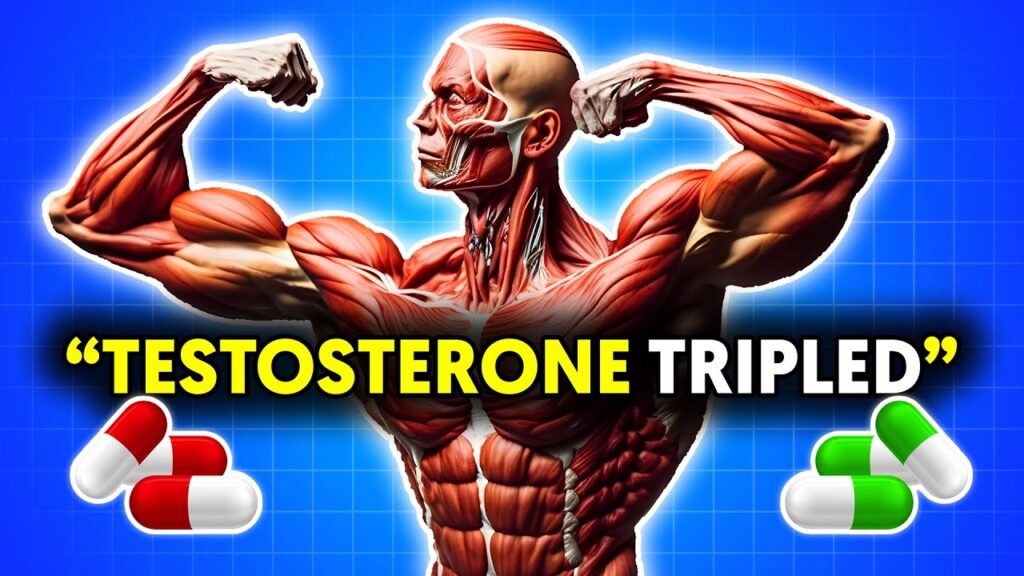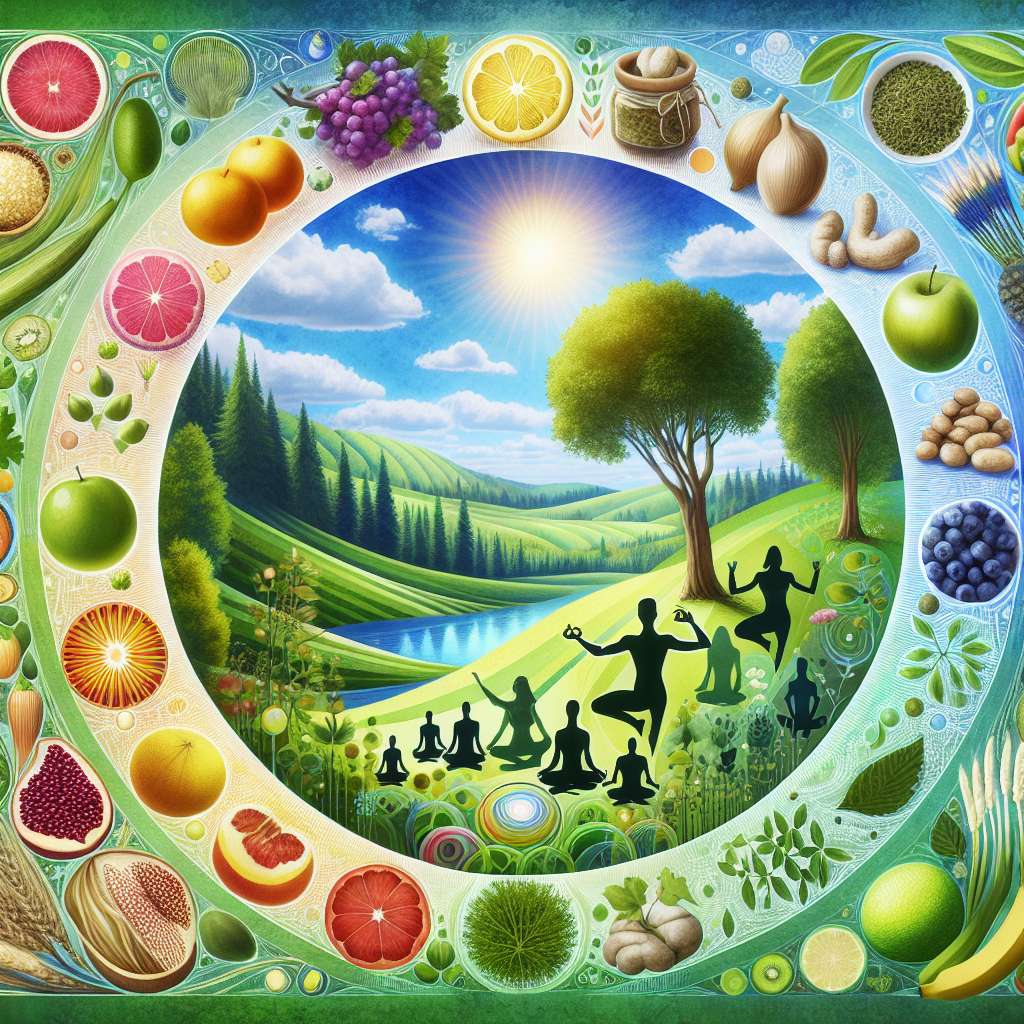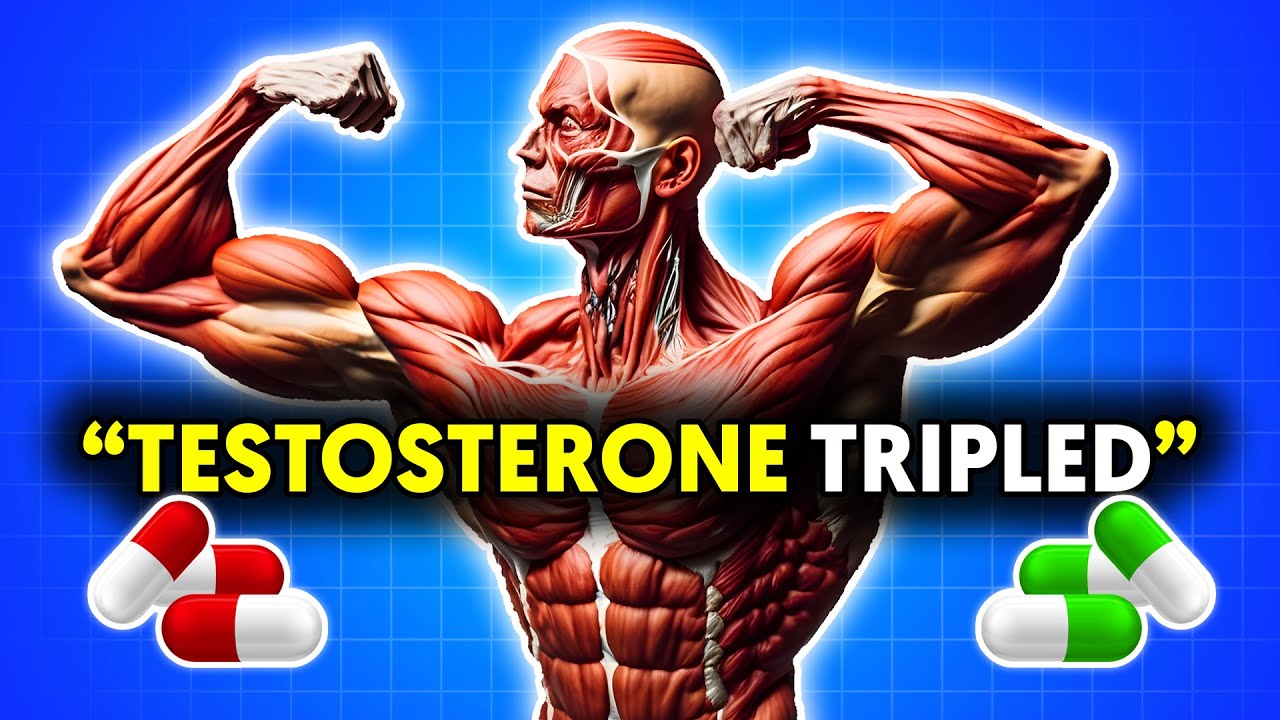This video titled “20 Vitamins, Minerals, Amino Acids, and Herbs to Naturally Boost Testosterone Levels and Improve Reproductive Health” discusses the importance of testosterone in male health and the various issues that can arise from decreased testosterone levels. The speaker goes on to discuss 20 specific vitamins, minerals, amino acids, and herbs that can naturally enhance testosterone production, such as vitamin B6, vitamin D, vitamin C, zinc, magnesium, selenium, and more. They also mention the benefits of amino acids and herbs like d-aspartic acid, l-arginine, ashwagandha, fenugreek, and tongkat ali. The video provides guidance on smart shopping for testosterone-boosting supplements and emphasizes the importance of prioritizing exercise for optimal results.

The Importance of Testosterone
Testosterone plays a crucial role in male health, impacting various aspects such as sexual and physical health, bone and muscle development, fat storage, and red blood cell production. As men age, testosterone levels naturally decline, which can lead to a range of issues including poor libido, muscle mass loss, erectile dysfunction, and increased fat.
To combat these problems and maintain optimal health, it is essential to focus on boosting testosterone levels. There are various ways to achieve this, including through the consumption of vitamins, minerals, amino acids, and herbs that naturally enhance testosterone production.
Vitamins for Testosterone Boosting
Vitamin B6
Vitamin B6 is among the most common B vitamins known for its ability to enhance testosterone production. While B6 does not directly create testosterone, it serves as a metabolism component that aids in its efficient production. Additionally, vitamin B6 helps to suppress the synthesis of estrogen, promoting natural testosterone production.
Vitamin D
Vitamin D is a natural source of testosterone, primarily obtained through sunlight exposure. However, not everyone gets enough sun exposure, and vitamin D is challenging to find in foods. Men with vitamin D deficiency are more likely to have low testosterone levels. Vitamin D supplementation can stimulate muscle growth, improve energy levels, and reduce body fat.
Vitamin C
Vitamin C, known for its immune-boosting properties, has also been clinically proven to raise testosterone levels. By combating oxidative stress and improving overall health, vitamin C indirectly enhances sex drive by supporting the production of arousal-associated hormones. High oxidative stress is associated with negative effects on male reproductive functions.
Vitamin A
Vitamin A is essential for male reproductive health. When vitamin A levels are low in the body, serum testosterone levels can drop, adversely affecting libido and overall testosterone production. Vitamin A is crucial for metabolizing dietary fats, which are necessary for optimal testosterone levels.
Vitamin E
Vitamin E is a potent antioxidant that offers protective benefits for testosterone. By improving blood flow to the pelvic organs and the brain, vitamin E significantly improves sex drive. It encourages the creation of prostaglandins and testosterone, leading to better overall blood flow.
Vitamin K2
Vitamin K2 plays a pivotal role in testosterone production by acting as a hormonal receptor and aiding in cellular signaling. It helps shape and guide testosterone throughout the body, ensuring optimal testosterone use.
Minerals for Testosterone Boosting
Zinc
Zinc is a crucial mineral for the male reproductive system. Low zinc levels can lead to hypogonadism or low testosterone. Zinc supplementation supports testosterone production and regulation, making it essential for those experiencing a decline in testosterone levels.
Magnesium
Magnesium is required for energy production, muscle function, and testosterone production. Clinical trials have shown that magnesium supplementation increases both total and free testosterone levels, making it effective for average men who lack exercise, healthy athletes, and men approaching the end of their prime.
Selenium
Selenium is an antioxidant that plays a role in the metabolic process. Studies have shown that taking a selenium supplement may improve testosterone levels and support male fertility by improving semen quality. Daily intake of selenium in conjunction with N-acetylcysteine has also been found to increase testosterone production and sperm count.
Boron
Boron is a trace mineral that impacts testosterone production by improving magnesium absorption. Studies have shown that boron supplementation can more than double testosterone production and free serum levels.
Amino Acids for Testosterone Boosting
D-Aspartic Acid
D-Aspartic Acid, also known as DAA, is an amino acid that has shown potential in boosting testosterone synthesis and male fertility in animal studies. While there are limited human studies on DAA, its direct link to testosterone production in rodents suggests a positive effect on testosterone levels.
L-Arginine
L-Arginine is an amino acid that not only benefits muscle building but also promotes male sexual health and testosterone production. It stimulates the secretion of luteinizing hormone (LH), which is vital for testosterone production. L-Arginine is found in various foods, making it easily accessible through a balanced diet.

Herbs for Testosterone Boosting
Ashwagandha
Ashwagandha, widely used in Ayurvedic medicine, has been found to increase testosterone levels. A study on men aged 40 to 70 found that taking an Ashwagandha extract led to a 15% increase in testosterone and an 18% increase in DHEA, a hormone that aids in the production of other hormones, including testosterone.
Fenugreek
Fenugreek contains compounds called furostanolic saponins that may increase testosterone production. Studies have shown that taking fenugreek supplements can improve testosterone levels and symptoms related to low testosterone, such as low libido. Fenugreek’s potential to stop the conversion of testosterone into estrogen makes it an effective option for boosting testosterone levels.
Mucuna Pruriens
Mucuna Pruriens, also known as velvet bean, contains l-dopa, which stimulates testosterone synthesis. This herb enhances testosterone production, ultimately resulting in the growth of muscle mass and sperm production within the testes. It is popular among bodybuilders for its positive effects on testosterone.
Tribulus Terrestris
Tribulus Terrestris is a small leafy plant that has traditionally been used for medicinal purposes, including boosting testosterone levels. While scientific evidence about its effects on testosterone is mixed, Tribulus Terrestris is known to have potential benefits for testosterone production. It is advisable to use it with caution and consult with a healthcare professional.
Tongkat Ali
Tongkat Ali is believed to increase testosterone levels in men with low testosterone. It has gained attention for its potential to improve overall male sexual health and energy levels. Tongkat Ali is known for its ability to enhance libido and stamina.
Maca Root
Maca root, a herb prominent in traditional Peruvian medicine, has been associated with improved sexual desire and fertility. While it may not directly boost testosterone, it offers numerous benefits for overall sexual health, potentially leading to increased testosterone production.
Ginger
Ginger supplementation has been linked to improved blood flow and may enhance testosterone production. While more research is needed, the potential benefits of ginger on testosterone levels make it a valuable addition to natural testosterone-boosting approaches.
Choosing Testosterone-Boosting Supplements
There are many testosterone-boosting supplements available, including single vitamins, mineral blends, and herbal/nutrient blends. When choosing a supplement, it is vital to consider the ingredients and look for research-backed options, proper dosage, good bioavailability, and products made by reputable companies. Consult with a healthcare professional before starting any supplement regimen.

Exercise and Supplementation
While supplementation can be beneficial for boosting testosterone levels, it is important to prioritize exercise for optimal results. Regular exercise, particularly strength training, has been shown to stimulate testosterone production naturally. Combining exercise with testosterone-boosting supplements can offer comprehensive support for maintaining optimal testosterone levels and overall health.
Conclusion
Maintaining healthy testosterone levels is crucial for male health, impacting various aspects of well-being, including sexual and physical health, bone and muscle development, fat storage, and red blood cell production. Through the consumption of vitamins, minerals, amino acids, and herbs that naturally enhance testosterone production, it is possible to support testosterone levels and maintain overall health. However, it is important to consult with a healthcare professional before starting any new supplementation routine and to prioritize exercise in addition to supplementation for optimal results.
